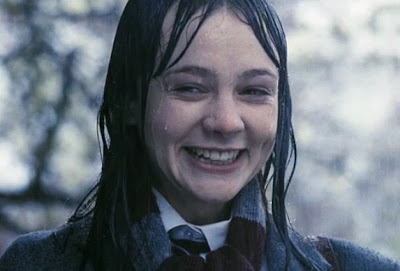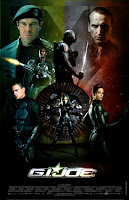Despite a feud between ABC and Cablevision that left millions unable to watch the big show, the Academy Awards still went on as planned.
As expected, “The Hurt Locker” took home the big prize at the Academy Awards, along with five other Oscars. Also, as expected, “Hurt Locker” director Kathryn Bigelow broke one of the last glass ceilings and became the first woman ever to take home the Best Director prize.
Perhaps the only real surprises of the night came in the Screenplay categories. The Best Adapted Screenplay category seemed like a done deal: “Up in the Air” had it basically since it came out in December. It’s balance of comedy and drama, along with its ability to be both original and faithful, made it seem like a shoo-in. Instead, the heart-wrenching screenplay for “Precious” took home the prize. It seemed as if “Precious” had lost much of its momentum after its November release. Guess I was wrong on that one.
Meanwhile, in Best Original Screenplay, “The Hurt Locker” and “Inglourious Basterds” were virtually tied. It seemed that “Basterds” was a frontrunner, as “Hurt Locker” was much more of an achievement in directing and editing than it was in writing.
However, this night was a “Hurt Locker” sweep, so Tarantino unfortunately walked home empty handed. However, the film didn’t get totally shut out: Waltz got his well-deserved Best Supporting Actor trophy. He also gave what was probably the best speech of the night. Seriously, this man has a knack for taking ordinary words and making them sound like poetry. As Waltz’s Landa might say, “that’s a bingo!” Lets hope he rides this to a fortuitous future career.
Another win, although expected, was still no less exciting. Jeff Bridges won the first Oscar of his long career for his performance as a burnt out country singer in “Crazy Heart.” He movingly thanked his parents, saying the award was as much for them as it was for him. There’s nothing much more to say about the greatness of Bridges besides this: “The Dude Abides.”
No surprises in the female acting categories, either. Mo’Nique took home an Oscar for something that will not be lost in time and Sandra Bullock won for “The Blind Side.” I have not seen “The Blind Side” yet, so therefore I can’t judge Bullock’s worthiness. However, from what I’ve seen of her, I do know that she is a good actress, and never a great one. Perhaps she can prove me wrong.
Now, onto the show itself. It was a night of ups and downs, or as the Dude would say, “strikes and gutters.” The biggest up were the two hosts: Alec Baldwin and Steve Martin. Both men are funny and charismatic, but two hosts seemed like two much. However, it was perfect in every way. The two actors read off their scripted banter in the most perfect harmony. And they threw out a few good improvised lines, as well.
The pair of Baldwin and Martin were a welcome improvement over last year, when the Academy attempted the “song-and-dance man” approach with Hugh Jackman, with little success. While Baldwin and Martin would be great recurring hosts, Neil Patrick Harris proved himself an eligible contender contented his surprise performance at the beginning of the telecast. The combination of Baldwin and Martin (along with other performers like Harris) made a mostly predictable show easier to watch.
Before the winners were even announced, the Best Picture race was defined as a race between “The Hurt Locker” and “Avatar,” a true David and Goliath story.
This isn’t the first David and Goliath Oscar race, but this was one of the very first where David came out the victor. In the past, it seemed an A-list cast and a successful box office gross were key to getting the crown. It makes you think now that maybe “Goodfellas” could’ve beaten “Dances with Wolves,” “Pulp Fiction” could’ve beaten “Forrest Gump,” or even “L.A. Confidential” could’ve beaten “Titanic.”
Will “The Hurt Locker” be remembered down the road as a cinematic classic, or one of Oscar’s biggest mistakes? Maybe in the future it’ll be known as the best film made about the Iraq War, with “Inglourious Basterds” and “A Serious Man” being masterpieces ahead of their time, “Avatar” a fun blockbuster that changed visual cinema, “District 9” a sci-fi film on the same level with “Blade Runner,” and “Up in the Air” as an example for aspiring filmmakers of how to write a good script.
What I’m trying to say is that no matter your number one preference, and no matter what won, this was a rare year where almost every film and filmmaker earned their nominations. Here’s to hoping 2010 is going to be another good year for cinema.
See the Full List of Winners Here.















.jpg)

